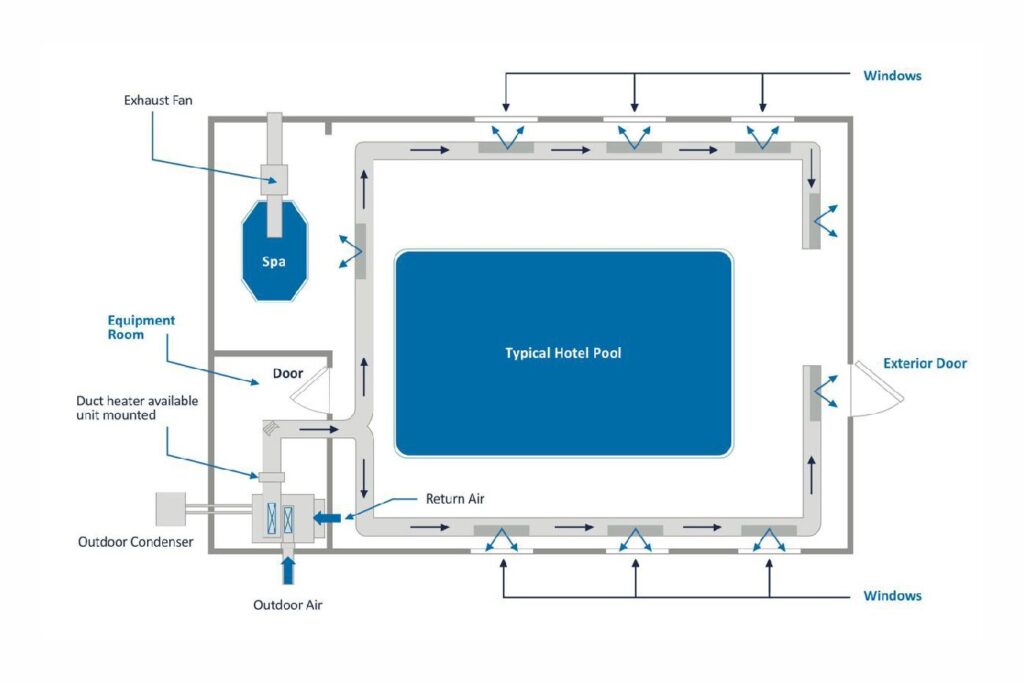Indoor air quality in enclosed spaces is crucial for human health and comfort. High humidity levels cause unpleasant odors, mold, and bacterial growth. Dehumidification systems used to prevent these issues not only control humidity but also improve indoor air quality.
Impact of Dehumidification Systems on Air Quality
High humidity leads to increased mold spores and bacteria formation indoors. Dehumidification systems remove excess moisture to:
- Prevent mold growth.
- Reduce allergen and microorganism risks.
- Eliminate unpleasant odors.
- Keep the air fresh and healthy.
Additionally, by balancing indoor air conditions, these systems reduce respiratory issues and allergic reactions.
Where Are They Important?
- Residences
- Offices
- Hospitals
- Hotels
- Archives and museums
- Gyms and swimming pools
In such enclosed spaces, dehumidification systems should be actively used to maintain indoor air quality.
Additional Benefits
- Balances energy consumption.
- Extends equipment lifespan.
- Contributes to human health and comfort.
- Prevents structural damage.
Dehumidification systems do more than just remove excess moisture; they enhance indoor air quality to create healthy and comfortable environments. Especially in enclosed, heavily used spaces, these systems are ideal solutions to improve quality of life.
Keywords
dehumidification system, indoor air quality, mold prevention system, allergen control, indoor environment air quality, humidity control device, air handling unit dehumidification, air quality solutions, indoor air purification, healthy living spaces
